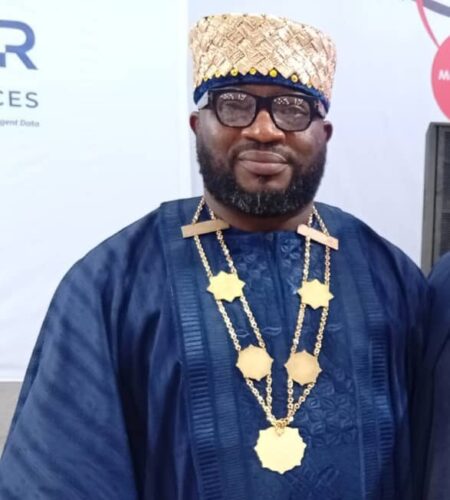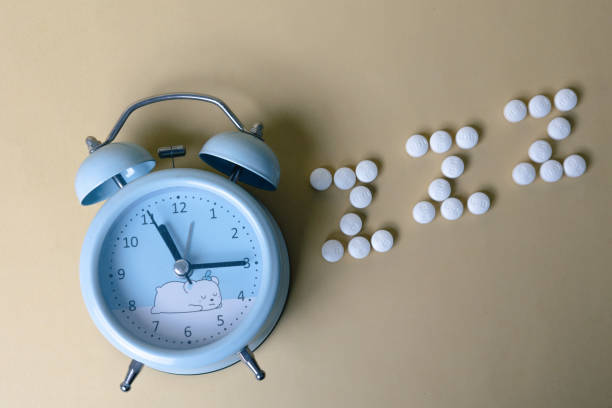In recent moves, NAFDAC has been making efforts towards strengthening its regulatory framework by prioritizing public health through various initiatives, enhanced supply chain visibility, and capacity building for stakeholders, etc. According to PharmaTimes Senior Correspondence – CHIGBU NWAOBIA who covered a recent press conference held by the DG, Prof Mojisola Adeyeye, in Lagos, he reports that the aim of the efforts which include compulsory bioequivalence studies (BE) of all generic medicines in Nigeria, is to ensure the safety, efficacy, and quality of required products, and ultimately safeguarding public health. Critical stakeholders also hold that besides all of these, the measures will go a long way towards enhancing trust in the pharmaceutical industry as well as encourage rational prescribing practices.
The National Agency for Food and Drug Administration and Control (NAFDAC), has announced that all generic medicines in Nigeria must undergo bioequivalence (BE) studies before they are granted approval.
Director General of NAFDAC, Prof. Mojisola Adeyeye made the announcement in a press statement she issued recently in Lagos on the subject.
According to her the decision is part of a wider regulatory plan deliberately being taken by the Food and Drug agency in Nigeria to ensure that generic drugs deliver the same results as branded medicines, even as she said that by mandating bioequivalence studies, NAFDAC is strengthening its regulatory framework to safeguard public health.
“Bioequivalence (BE) is a critical scientific concept that ensures the quality, safety, and efficacy of generic drug products in comparison to their innovator counterparts,” Adeyeye said.
“By ensuring that generics meet these standards, NAFDAC, as the National Regulatory Authority, is fulfilling its mandate to safeguard public health through a robust, science-based regulatory framework,” Adeyeye said.
The DG said that BE studies are key to avoiding treatment failures, reducing fake drugs in circulation, and building trust in Nigeria’s healthcare system.
“Implementing BE studies fosters confidence in the therapeutic equivalence of generic medicines, which are widely used in Nigeria. This initiative promotes public health by reducing the circulation of substandard medicines.”
She also revealed that NAFDAC has rolled out new regulations and guidelines for drug companies, all accessible on its official website.
“First, the Agency has issued comprehensive regulations and guidelines for the pharmaceutical industry, detailing how to achieve therapeutically equivalent generic drug products through BE studies.
NAFDAC also introduced a “Note to Industry” and is training staff and industry players, including researchers, CROs, and healthcare workers, to ensure proper understanding of the requirements.
“This ongoing training ensures a shared understanding and supports a smooth, effective, and sustainable implementation process,” Adeyeye said.
She reiterated that this is one in a series of engagements aimed at involving more stakeholders in the fight for safe and effective medicine use in Nigeria.
It urged the public to support and use only approved generics
In providing details of the mechanics of the new regulation, the DG further explained that the investigation of bioequivalence of drugs involves the comparison of the rate and extent of active ingredient absorption between the generic product and the innovator’s brands.
This comparison, she noted, is usually performed through clinical trials in human subjects or through in vitro studies using simulated biological fluids. The results of these studies provide the basis for determining the therapeutic equivalence and interchangeability of the generic product with the innovator’s product. The positive outcome also impacts market authorization of the product.
To ensure the validity and reliability of the results, NAFDAC said the guidelines on the investigation of bioavailability and bioequivalence of drugs prescribe strict scientific and ethical standards for the design, conduct, analysis, and reporting of bioavailability and bioequivalence studies.
“NAFDAC has placed great importance on the need to have strong and qualified Contract Research Organizations (CROs) to implement BE studies. All Principal Investigators (PIs) and CROs must be profiled and approved to implement BE studies. They must be qualified with respect to the capacity of each of them while the PI must qualify by education, training, and experience. The importance of this is underscored by recent news in some regulatory climes on revocation of market authorizations due to flawed studies.
“The withdrawal of such market authorization was due to data irregularities, procedures, study documentation and the computerized systems. Therefore, NAFDAC has put together conditions that must be met for approval of a CRO for Bioequivalence studies. If all the conditions are met, the approval will be for a probationary period of one year. After this, a re-assessment will take place every other year for the first four years.”
Thereafter, a five-year license will be given.
1. The CRO must be registered by the Corporate Affairs Commission, in Nigeria or any recognized government entity.
2. The Principal Investigator must have a PhD degree in pharmaceutical sciences, MD in medical sciences or related fields.
3. Members of the Top Management of the CRO must have a second or third degree in pharmaceutical or medical sciences or vast experience in bioequivalence studies with background in other sciences.
4. The Principal Investigator and members of the top management of the CRO must have published on clinical trials in peer-reviewed journals.
5. The first and subsequent Bioequivalence study contract from a pharmaceutical company or sponsor must be adequately presented with signed agreement with the sponsor.
6. The CRO must submit Bioequivalence clinical trial protocol and secure ethical clearance from a Health Research Ethics Committee (HREC) in Nigeria.
7. The CRO must submit bioequivalence clinical trial protocol and other relevant documents on NAFDAC Electronic Clinical Trial Application Platform (eCTAP) for review and obtain authorisation before conduct of the study.
8. A preliminary semi-independent audit by NAFDAC/External Expert Clinical Trial Committee members of the bioequivalence centre or site must demonstrate readiness of the bionalytical laboratory, clinical site and a computerized system of the CRO.
9. A Good Clinical Practice Inspection will take place at any time during the study to ensure compliance.
10. A mandatory Annual Report of Compliance of the above is required for continued function as a CRO.
Building of this ecosystem in Nigeria will ensure quality, safety and efficacy of generic medicines. This will elevate the regulatory framework of NAFDAC in quest for Maturity Level 4 and WHO Listed Authority. It will also position local manufacturers for prequalification of their products and increase their competitiveness in international trade. This win-win situation will make the convergence of health and wealth a plus for NAFDAC, the country and the global community, the agency concludes.





